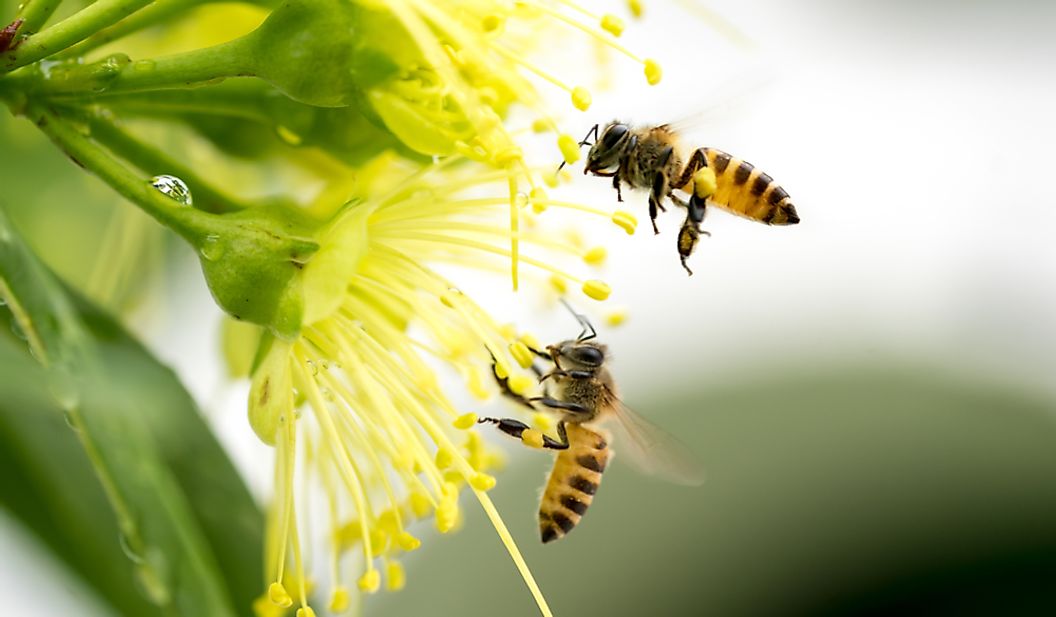The Native Pollinator Habitat Project, launching in summer 2021, is McGill’s Macdonald Campus Sustainability Working Group’s latest initiative that aims to make the campus more hospitable to native species. Led by Frieda Beauregard, professor in the Department of Plant Science at McGill and curator of the McGill University Herbarium, the project will provide floral resources and nesting habitats to support local bee and pollinator populations.
Inspired by a study in the Journal of Insect Conservation, Beauregard and her team will set up logs and squares of sandy soil to provide comfortable nesting places for local ground-nesting bees.
Global bee populations have been in steady decline since the 1940s. A growing awareness of the threats to pollinators has resulted in an increased public effort to support bees, such as installing “bee hotels” on personal property, banning harmful pesticides called neonicotinoids, and cultivating wild plants.
Gail MacInnis, a postdoctoral fellow at Concordia University, is studying the impact of urban beekeeping in Montreal on native bee populations in Montreal. According to MacInnis, most of Montreal’s native bees have been neglected by mainstream conservation groups. This is why efforts like the Pollinator Project, which support the unique habitats and needs of native bees, are necessary.
“A lot of people do not realize that around 70 to 80 per cent of our [175] native bee species […] nest in the ground,” MacInnis said in an interview with The McGill Tribune.
Unlike the typical depictions of bees in swarms, many of Montreal’s native bee species are solitary and nest in sandy, well-drained, undisturbed soils where they lay between five and 10 eggs annually.
There has been a recent influx of urban beekeeping in Montreal, which has been on the rise since 2008; multiple companies have built profitable businesses selling urban beehives as a tool to support biodiversity.
MacInnis explained that native bee species have evolved with complex relationships to local plants. The native squash bee, for example, can only pollinate squash flowers. Though honey bees can also populate these blossoms, they often outcompete local species in doing so, draining local pollen resources and damaging local ecosystems.
“People have been […] misled into thinking, ‘if I keep a hive in my backyard, this is helping fight bee decline,” MacInnis said. “It is much more likely that [specialized native bees are] going to decline because they cannot just shift to another plant like a honey bee would.”
The impact of this rise in urban beekeeping on local bees is not yet known, and MacInnis believes that is part of the problem. Unlike Toronto and other major cities, Montreal has no formal system in place to track the location or quantity of honey bees in the city.
“One of my biggest hopes is that […] we start monitoring our honey bee populations so that we [can] avoid situations where we are putting high densities of hives in the same area,” MacInnis said. “Keeping honey bees to save the bees is like keeping chickens to save the birds.”
Luckily, supporting native bees through individual action is not difficult if done properly. Those with backyards can make their soils hospitable to ground-nesting bees by mulching less, avoiding pesticides, and planting native flowers like Bee Balm (Wild Bergamot).
At Mac Campus, the 200 trees project and soon-to-be-planted wildflower meadow are other additions to the Pollinator Habitat Project aimed to support native bees. Through a partnership with John Abbott College, the campus will also be used for educational purposes: Students will be able to study the pollination patterns of insects and share discoveries on iNaturalist, an app that allows image-based sharing of native plants.
“This project is a small part of other projects trying to make [Macdonald Campus] that much more full of life,” Beauregard said in an interview with the Tribune.
MacInnis echoed the sentiment, and hopes that members of McGill and the public will embrace the opportunity to discover how they can support the local environments that sustain our native pollinators.








